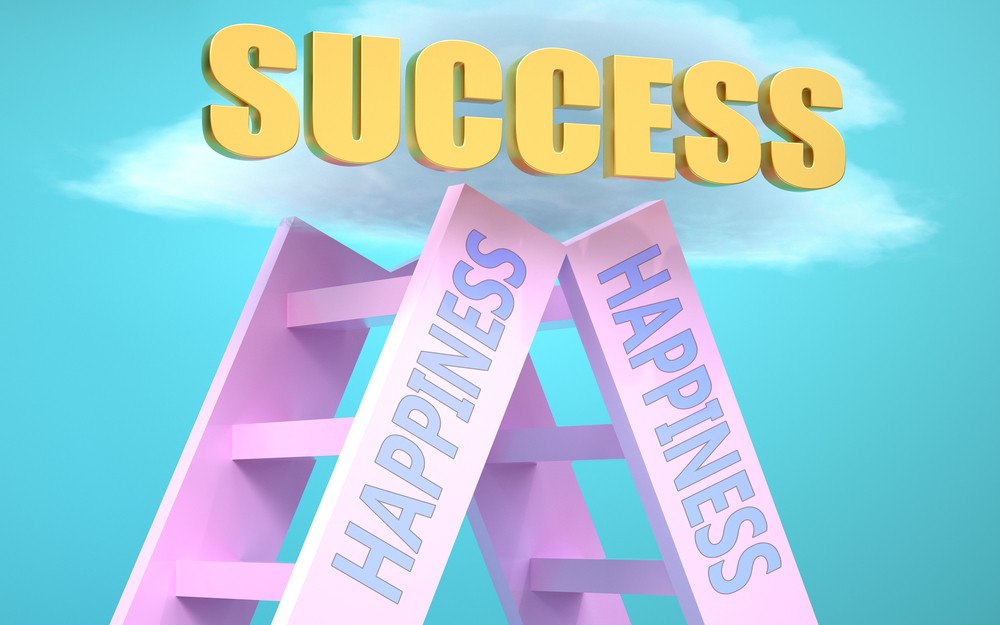As a BetterHelp affiliate, we receive compensation from BetterHelp if you purchase products or services through the links provided
Living in Israel is like being caught in a whirlpool of tension, fear, and uncertainty. Our day-to-day is punctuated by news updates that are often grim, reflecting the current conflict with Hamas and the ceaseless threat of terrorism. But here’s the thing: life doesn’t pause, and neither should our emotional well-being. That’s why I turned to three thought leaders who’ve offered their tried-and-true coping mechanisms, each aiming to bring peace to our turbulent lives. Here’s what they recommend:
- Embrace Journaling for Emotional Catharsis
- Foster Connections and Delve into Mindfulness
- Build a Strong Support Network and Prioritize Self-Care
Let’s unpack these one at a time.
 1. Embrace Journaling as Emotional Release
1. Embrace Journaling as Emotional Release
One coping mechanism that I recommend is journaling. Writing down your thoughts, fears, and experiences can be an emotional release and provide valuable insights into your mental state. Taking a moment daily to reflect on your thoughts makes your fears more manageable. It’s like conversing with yourself, where you’re both the speaker and the listener.
Over time, you may notice patterns or triggers, which can be very helpful for developing your coping strategies.
Bayu Prihandito, Certified Psychology Expert, Life Coach, Founder, Life Architekture

2. Foster Connections and Practice Mindfulness
Living under constant threats is immensely challenging. One coping mechanism is fostering community connections, as shared experiences create a support network that understands the unique fears and traumas. Establishing routines can provide a sense of normality and control amidst chaos.
Practicing mindfulness exercises like deep breathing or meditation can help manage immediate anxiety. Always seek professional counseling; trauma-trained therapists can provide strategies tailored to individual needs.
Finally, remember that everyone copes differently. Finding what resonates with you personally is crucial in navigating such trying times.
Matthew Sims, Personal Injury Lawyer, Rapoport Weisberg & Sims, P.C.

3. Build Support Network and Prioritize Self-Care
Developing and maintaining a solid support network of family and friends is vital. Engage in community support groups where experiences and coping strategies can be shared.
Practice self-care routines, including exercise, meditation, and engaging in enjoyable activities. If the trauma significantly impairs mental health, seeking professional counseling or therapy is highly recommended.
Einav Biri, CEO, FARUZO

Coping Amidst Chaos: A Holistic Guide to Emotional Resilience in Unpredictable Times
In an age where terrorism looms like an unwelcome shadow, particularly in metropolitan areas, emotional resilience is not just an asset—it’s a necessity. Living under such circumstances can feel like walking a tightrope of anxiety and fear, making it all the more important to equip ourselves with coping mechanisms that offer stability and peace. We’ve collected insights from thought leaders across various fields who provide practical advice on maintaining mental well-being under these challenging conditions. From journaling to community building and self-care, these recommendations offer a well-rounded approach to tackling the emotional toll of life in unpredictable times. Explore strategies to help you find your footing when the ground beneath you feels unsteady.
Bayu Prihandito emphasizes the power of journaling. It’s not just about putting pen to paper but about creating a space for self-reflection. The act of writing can be therapeutic in itself.
- Tip: Consider using prompt questions in your journal. For example, “What triggered my fear today?” or “What did I do to cope?” This can help you better understand your emotions and reactions over time.
Matthew Sims makes an excellent point about the importance of community and mindfulness. In turbulent times, our first instinct might be to isolate, but the value of a shared experience cannot be overstated.
- Mindfulness Hack: For immediate stress relief, try the 4-7-8 breathing technique. Inhale through the nose for 4 seconds, hold the breath for 7 seconds, and exhale through the mouth for 8 seconds. It’s a quick way to center yourself.
Einav Biri focuses on the value of a support network and self-care. It’s easy to underestimate the power of a good conversation or a walk in the park, but these simple acts can provide a much-needed respite from the stresses of life.
- Self-Care Ideas:
- Exercise: Even a short 15-minute walk can boost your mood.
- Meditation: Apps like Headspace or Calm offer quick sessions.
- Enjoyable Activities: Sometimes, it’s okay to “escape” through a good book or movie.
Coping with such an existential threat requires a multi-faceted approach, drawing on emotional, social, and professional resources.
- Final Tip: Engaging in community preparedness programs might also be beneficial. Not only does it equip you with useful skills, but it also fosters a sense of empowerment, making you feel like an active participant in your safety and well-being.
Feel free to pick and choose what strategies work best for you. Coping is a deeply personal experience; what works for one person may not necessarily work for another. Remember, the key is to find what gives you a sense of control and peace in an otherwise uncontrollable situation.
 A Reality Check: When It’s Time to Seek Mental Health Help Amidst Current Attacks
A Reality Check: When It’s Time to Seek Mental Health Help Amidst Current Attacks
The constant stream of distressing news and the palpable tension in the air can take an undeniable toll on your mental health—or that of your loved ones living here in Israel. Recognizing the signs that you or someone you care about might need professional mental health help can be a lifesaver, literally. So, how do you know it’s time to take that step?
Signs That Indicate the Need for Mental Health Assistance:
- Persistent Anxiety or Fear: Feeling anxious or scared in ways that interfere with daily tasks.
- Changes in Behavior or Personality: If you or a loved one becomes overly irritable, withdrawn, or behaves differently.
- Emotional Numbness: Feeling disconnected or emotionally unavailable for extended periods.
- Insomnia or Over-Sleeping: Disrupted sleep patterns can indicate mental distress.
- Physical Symptoms: Frequent headaches, stomach aches, or unexplained physical ailments.
- Social Withdrawal: Isolating oneself from friends and family, avoiding social interactions.
- Loss of Interest: In activities that were once enjoyed, a sign of potential depression.
- Substance Abuse: Increased dependence on alcohol, drugs, or prescription medications as a coping mechanism.
Quick Tips for Immediate Action:
- Don’t Ignore the Signs: Brushing it off could worsen the situation.
- Reach out to Trusted Individuals: Sometimes, just talking can help.
- Consult a Professional: A therapist or counselor specializing in trauma can offer tailored advice and coping mechanisms.
- Helplines and Online Resources: Don’t underestimate the value of anonymous help; sometimes, it’s easier to open up to strangers.
If you notice these signs in yourself or a loved one, it’s crucial to consult a mental health professional for targeted assistance. It’s not a sign of weakness; it’s a step toward resilience.
 Charting the Course: Setting Goals and Recognizing Progress in Therapy
Charting the Course: Setting Goals and Recognizing Progress in Therapy
When you decide to take the empowering step of seeking therapy, especially in a stress-charged environment like Israel today, setting goals and tracking progress is critical to maximizing the benefits. After all, therapy isn’t just about discussing your issues; it’s about evolving into a healthier version of yourself.
How to Set Therapy Goals:
- Be Specific: Instead of saying, “I want to feel better,” aim for something more specific, like, “I want to manage my anxiety during red alerts (rocket warnings).”
- Involve Your Therapist: Don’t shy away from asking for their input on realistic and achievable goals.
- Break It Down: Large goals can be overwhelming. Break them down into smaller, actionable steps.
- Timeline It: Some goals are short-term (“I want to sleep better this week”), and some are long-term (“I want to build stronger coping mechanisms over the next six months”).
- Prioritize: Recognize what needs immediate attention and what can wait.
 Monitoring Progress:
Monitoring Progress:
- Journaling: Keep track of your moods, triggers, and coping strategies. This can help both you and your therapist see your progress over time.
- Regular Check-ins: Use your therapy sessions as a space for honest evaluations. Are you moving closer to your goals?
- Feedback Loop: Ask your therapist for feedback. They can provide an objective perspective on how far you’ve come.
- Celebrate Small Wins: Successfully managed your anxiety today? That’s progress!
- Adjust Goals: It’s okay to change your goals based on your evolving needs or if you find that a specific goal isn’t serving you well anymore.
Tips to Keep in Mind:
- Be Patient: Progress often comes in fits and starts. Don’t be discouraged by apparent plateaus.
- Stay Honest: Open communication with your therapist will help fine-tune your path toward healing.
- Involve Loved Ones: Sometimes they notice progress before you do, and their support can be invaluable.
Therapy is a journey, and setting appropriate goals is your roadmap. Recognizing your progress, no matter how small encourages you to continue your path toward mental and emotional well-being. Stay committed, and don’t lose sight of why you started this journey in the first place.
 Navigating Emotional Terrain: My Guide to Coping in a Land Where Uncertainty Looms Large
Navigating Emotional Terrain: My Guide to Coping in a Land Where Uncertainty Looms Large
Living in Israel, especially right now, feels like navigating an emotional minefield. The constant threat of terrorism, amplified by the current conflict with Hamas, hangs heavy in the air, affecting every aspect of daily life. But, instead of being paralyzed by fear, I’ve been gathering insights and tips from experts in various fields on maintaining mental equilibrium in these unsettling times. I want to share these with you, hoping they might offer you stability and peace, just as they’ve done for me.
My Go-To Strategies for Keeping Sane in Insane Times
- Putting Pen to Paper: My Emotional Release
- Journaling has been incredibly therapeutic. I’ve found it invaluable to jot down my thoughts, fears, and feelings. Sometimes, just writing them down diffuses some of their emotional charges, making my fears more manageable. As I read over my entries, I sometimes discover patterns or triggers that I hadn’t noticed before, which has helped me tailor my coping strategies.
- Finding My Tribe: Community and Mindfulness
- Being part of a community that understands the unique stressors we face here gives me a sense of belonging and emotional security. I’ve also taken to mindfulness exercises, like deep breathing and meditation, to manage bouts of immediate anxiety. And when things get too heavy, I don’t hesitate to seek professional counseling.
- The Inner Circle: Building Support and Prioritizing Self-Care
- A solid support network of family and friends isn’t just comforting; it’s essential. I’ve also been making time for self-care activities that make me feel good—exercise, meditation, or simply enjoying a good book. When I feel overwhelmed, I know that professional help is a phone call away, and there’s comfort in that.
While these strategies may not eliminate the emotional stress of living in a conflict zone, they’ve made it more manageable. I hope sharing this might make your journey a little less arduous.
About Jacob Maslow
After surviving the traumatizing events of 9/11, I took it upon myself to heal through helping others. I’m the primary caregiver of my children and understand from first-hand experience the lonely paths you have to walk as a partner and parent when leaving an unhealthy relationship.
We’re all echoing in a dark space that doesn’t have to be this empty, and that’s been my mission since finding solace and recovery in therapy: To help comfort others who are still in shock and at the prime of their struggle.
I came across BetterHelp after searching for this type of community. I wanted to belong to a body of proactive therapists and supportive therapy veterans that allowed me to see other sides of the story.
It was unconventional, and that’s what attracted me most. During my most challenging times, when my ex-wife completely cut me off from my children, I found comfort and clarity through BetterHelp.
Instead of being chained to a strict therapist recommendation, I was in charge of who I felt understood my struggle most. That allowed me to find my true peace, as I was reunited with those who read behind my words and had first-hand experience with my trauma.
Recovery is a choice; with BetterHelp, that choice will be a few clicks away. You can join their couples-oriented platform, Regain.us, for those stuck with family estrangement and toxic relationship patterns.
- 7 Ideas to Help You Relax and Unwind on a Family Vacation - April 27, 2025
- How Having Cybersecurity Protection Helps You Relax - April 25, 2025
- 8 Reasons Why Spending Time Outside Calms You Down - April 25, 2025
This site contains affiliate links to products. We will receive a commission for purchases made through these links.


 1. Embrace Journaling as Emotional Release
1. Embrace Journaling as Emotional Release A Reality Check: When It’s Time to Seek Mental Health Help Amidst Current Attacks
A Reality Check: When It’s Time to Seek Mental Health Help Amidst Current Attacks Charting the Course: Setting Goals and Recognizing Progress in Therapy
Charting the Course: Setting Goals and Recognizing Progress in Therapy Monitoring Progress:
Monitoring Progress: Navigating Emotional Terrain: My Guide to Coping in a Land Where Uncertainty Looms Large
Navigating Emotional Terrain: My Guide to Coping in a Land Where Uncertainty Looms Large
